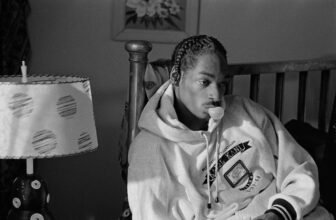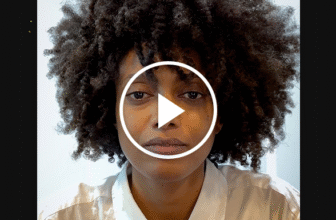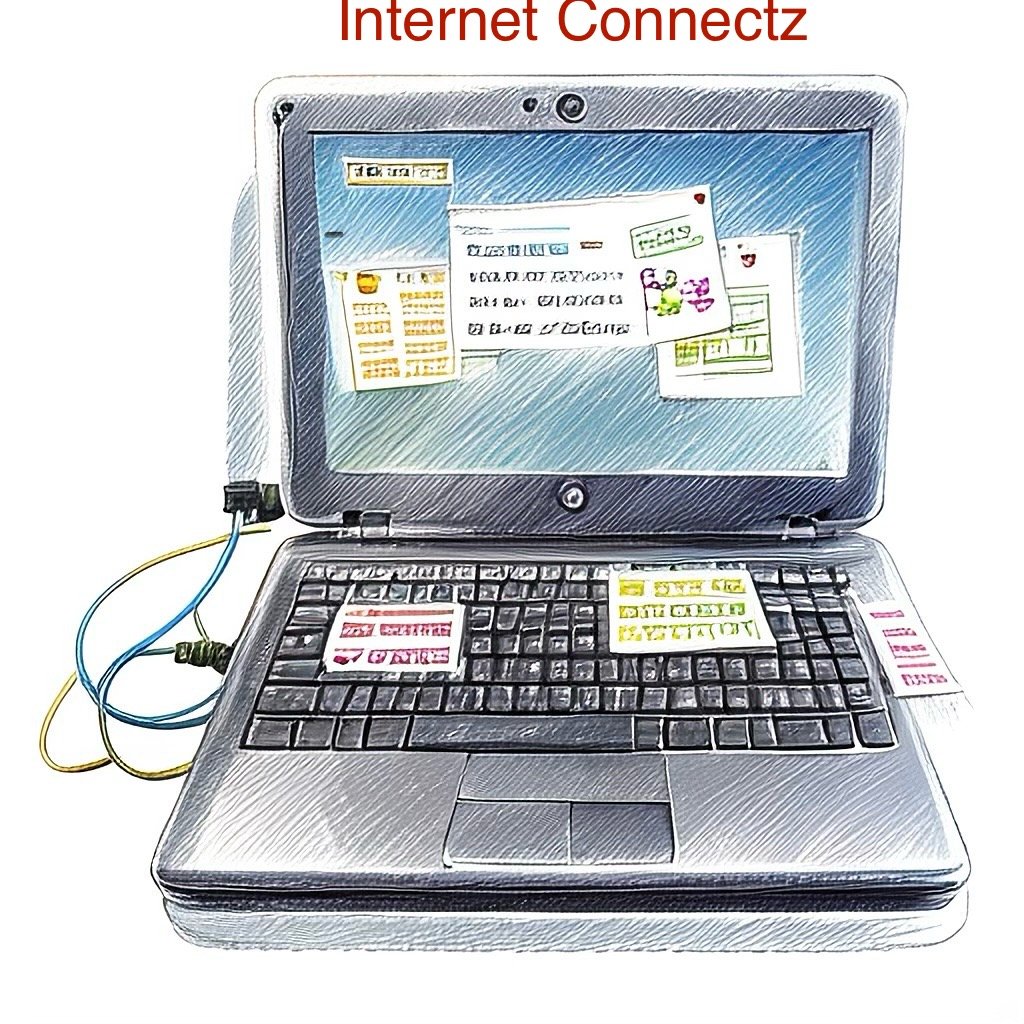Pop Culture Happy Hour : NPR
[THEME MUSIC]
STEPHEN THOMPSON: The Jurassic Park franchise is being rebooted once again. This time around, Scarlett Johansson, Mahershala Ali, and Jonathan Bailey head to a fresh island of mutant dinosaurs, where they experience a familiar mix of splashy kills and not-so-subtle morality tales. But does Jurassic World Rebirth live up to the original? I’m Stephen Thompson. Joining me today on NPR’s Pop Culture Happy Hour is Kristen Meinzer. She cohosts The Daily Fail, a podcast that does comedic close readings of the tabloids. Hey, Kristen.
KRISTEN MEINZER: Hey, nice to be back, Stephen.
THOMPSON: Great to have you. Also with us is Ronald Young, Jr. He’s the host of the film and television review podcast, Leaving the Theater. Hello, Ronald.
RONALD YOUNG JR.: Life finds a way, Stephen Thompson.
[CHUCKLING]
THOMPSON: It is great to have you both. So the Jurassic Park franchise has now been rebooted twice. After six films and more than 30 years, we’ve now got Jurassic World Rebirth. It’s set a few years after the conclusion of Jurassic World Dominion, but there isn’t all that much beyond dinosaurs that connects it to its predecessors. It’s a world where most people have grown bored of dinosaurs. They’re mostly a nuisance, while the deadliest have relocated to a remote equatorial region. A slimy pharmaceutical operative is trying to track down some dinosaur blood for an experimental drug, and that blood has to come from the biggest and most awe-inspiring living specimens available. To this end, he hires a mercenary named Zora Bennett. She’s played by Scarlett Johansson. She brings on her own team, played by, among others, Mahershala Ali. And they’re joined by the virtuous Dr. Henry Loomis, played by Jonathan Bailey. Soon, their boat is headed south, and they pick up a marooned family route to the deadly dinosaur action. Jurassic World Rebirth is in theaters now. Kristen, I’m going to start with you. What did you think of Jurassic World Rebirth?
MEINZER: Well, I really enjoyed the storyline with Scarlett Johansson, Mahershala Ali, and Jonathan Bailey, three people who have good hearts underneath it all. They’re down on their luck. And they’ve been wooed to do that questionable quest for big pharma. And I liked that there were three very specific things that really needed to happen in order for the plot to move forward. That’s just get three blood samples from three of these ginormous dinosaurs. This is a simple storyline. These are three really likable characters. But I will say that it really gets mucked up, unfortunately, when the movie decides to add what I call a Land of the Lost and then also a Lilo and Stitch storyline. And I’d also say the movie at one point tries to be Jaws, and that storyline seems to go on way too long. So if they would have just cleaned it up and stuck to the basics, I think this would have been a great movie. But because of that, I have mixed feelings about it. Great characters, not very focused. Not as good as it could have been.
THOMPSON: OK. How about you, Ronald?
JR.: Stephen, with this series, generally, I feel like we’ve been here for a very long time. This is our seventh movie.
THOMPSON: We have literally been here for a very long time.
JR.: Yes, like, we’ve been here for a while. And I remember walking into this film saying, it is impossible for this movie to be good, just by the circumstances of which it was made. And so my expectations walking into this film were very, very low. Now, we are all critics here. We understand that walking into a movie with low expectations means that sometimes you could be like, wow, oh, that was way better than I expected. That was not the case here. It was not only as bad as I expected, it was worse than I actually expected.
THOMPSON: Wow.
JR.: I did not like this movie at all. Kristen is right. I think there are elements of a good movie that exist in this one, but they are out of sequence. And all of the elements that should have been good, like, for instance, Mahershala Ali and Scarlett Johansson’s acting, which is normally good, was not good in this movie. And the writing is also bad. And also, the Land of the Lost, the family was the most irritating family I’ve ever seen in a film like this, ever. It was bad. It was a bad movie. I don’t think it was good. I think there’s barely anything redemptive about it. We could talk through all the details, but I just want to go on the record and say it was bad. It was bad.
THOMPSON: OK, I’m gonna wanna press you for some details on specifically–
JR.: I got you.
THOMPSON: –how it was bad, rather than like, oh, it was so bad!
JR.: Oh, no, no, no. I have details. We can get into it. I promise.
THOMPSON: I’m probably closer in line with what Kristen was saying. I think– talk about setting the bar low. I really hated the Chris Pratt, Bryce Dallas Howard Jurassic World movies, which I found sort of sullen and strangely sadistic. You know, Jurassic Park has always had this unusual relationship where they sort of have the dinosaurs meting out karma.
JR.: Yes.
THOMPSON: That happens in horror movies all the time, right? Like, the bad guy is always gonna get ripped to shreds in the most extravagant possible way. But particularly that first Jurassic World movie, a character that was, like, mildly inconsiderate would get torn apart almost for laughs. And I found it so incredibly, deeply unpleasant to watch. And in that way, the fact that this film has a little bit of a lighter touch, the leads, as Kristen said, are more agreeable and, you know, more generally appealing. This film feels like a corrective a little bit in that way. But at the same time, is it wild to you guys that a recurring theme in Jurassic Park sequels is dinosaurs are boring now? Other than the leads, like, society has become bored with dinosaurs.
JR.: It’s a weird theme if you don’t consider this series to be a metaphor for the movie series itself. Because if you think about it–
[LAUGHTER]
JR.: If you think about it as a metaphor for the movie series itself, they keep saying, oh, society is bored with dinosaurs now. And if you think about what that means for this film series, it means that they keep trying to up the ante with every single film that they make, or switch parts, or send different people to the same island to do a different mission for different dinosaurs to come back. And they keep doing that. And they keep hoping that the audiences come back to watch this. So if you think about it metaphorically, it still works. But in terms of the movie itself, I don’t understand why that seems to be a theme that they keep harping on, saying that society would suddenly be tired of these creatures being here, you know?
MEINZER: Oh, come on, Ronald. You would get it. Look at somebody who’s very famous for one thing they did that goes viral on TikTok, and everybody talks about that person for about 35 seconds. But then I just saw something else sparkly over there. And now we’re talking about that for the next 35 seconds.
THOMPSON: Kristen, are you comparing bringing back dinosaurs to Hawk Tuah?
JR.: [LAUGHS]
MEINZER: I might be, but I also just– like, for example, we had the lady space mission. Remember that? And it mostly just got ridiculed. Most people didn’t care about the lady space mission.
JR.: It’s true.
THOMPSON: Katy Perry on Blue Origin.
MEINZER: Oh, yeah.
THOMPSON: Gayle King. Yeah, OK.
MEINZER: Yeah, you know, I’m just saying things that are miraculous and usually incite wonder in us, like space–
THOMPSON: Uh-huh.
MEINZER: –we actually are at the point now where we kind of roll our eyes with a lot of this stuff. And manufactured dinosaurs? Yeah, I could see the world kind of getting to that point, where they’re like, yeah, no.
JR.: That really works, too, because if you think about the fact that most of why we get bored with it is because of the ways in which they insert capitalism very specifically into all of these things.
MEINZER: Yes.
JR.: So normally, we’d be excited to see someone go to the moon, but now they’ve taken a bunch of celebrities and put them on a rocket. And we’re like, we don’t care about this at all. And that’s what the movie does over and over again.
MEINZER: Exactly.
JR.: It keeps trying to, like, insert capitalism into a theme park of dinosaurs and wonders why kids growing up with these dinosaurs no longer care about them. They’re like, you can see a dinosaur anytime. Who cares about this?
MEINZER: Exactly. And then to have the bad guys in the movie be the ones who are manufacturing this thing is so meta–
JR.: Exactly, Kristen.
MEINZER: –even though it’s, like, the Hollywood system releasing this movie about the bad guys manufacturing the dinosaurs.
JR.: Exactly.
MEINZER: Yes. [LAUGHS]
THOMPSON: I mean, I do want to get to, like, you know, the appeal of the Jurassic Park movies, especially, you know– and I’m old enough. I go back. I was a young adult when the first Jurassic Park movie came out. It’s hard to overstate how novel the effects were and how much it really looked like they brought back dinosaurs. And it’s like if you grew up in the early 20th century and tried to explain to your kids that that train barreling toward you really looked like a train was barreling toward you. The first Jurassic Park movie really felt novel. It felt inventive. It felt like an effects breakthrough. Are you bored with dinosaurs? Did you watch this movie and just saw the dinosaurs and were just like, those are just CGI monsters, I don’t care?
JR.: It’s unfortunate. OK, so Jurassic Park, every now and then, they’ll put it on the big screen again. And every time that they do that, I wanna go see it. And I feel like, at the time we saw it, it was wondrous to behold. I still feel the same way watching the very first one. Watching the new ones, sometimes my expectations of what CGI is makes me think that I don’t want to see any seams in any of these Jurassic World movies. And sometimes I still see the seams of the CGI that we’re looking at in front of us. So I don’t necessarily feel that same wonder, even though they’re trying to evoke it. For instance, in this movie, there’s a scene with the big brontosaurus mutants, like the giant dinosaurs, long necks and the long tails, the plant eaters. Yeah, so I remember I was watching those, and I remember thinking, this isn’t as smooth as I want it to be. But they’re still trying to create the same sense of wonder as when Ellie Sattler has her head turned by Alan Grant to see them grazing in the field in the very first Jurassic Park. So I’m not necessarily getting that sense.
THOMPSON: I’m glad you mentioned that scene with the plant eaters and the long tails and stuff because it does kind of pause, and people are seeing something they’ve never seen before and reacting with that sense of wonder. I think you’re right about the first Jurassic Park. It has, you know, the dinosaur action. It has, you know, the objects in the mirror are closer than they appear with the eyeball and all those kind of iconic moments. But they also do have moments that are just– are just humans standing in awe. That is part of what gives that original film such a timeless quality. It’s like, you’re seeing something awe-inspiring on the screen. The characters are seeing something awe-inspiring in life. And that’s beautiful. And I think that was my favorite scene in this film, was kind of trying to evoke that memory, instead of just kind of going through the standard monster movie beats that I think so much of this film does go through.
MEINZER: It’s definitely evocative of the first movie, but I will say, I did think that scene went on too long, and it was relying too much on the original film and our nostalgia about the first film for that scene to stretch out for as long as it did. I think if the first film hadn’t existed, most people would just be like, why is this scene going on forever? What’s happening here?
THOMPSON: [LAUGHS] Well, Kristen, you kind of alluded in your initial take on this film that you really appreciated and enjoyed these kind of main characters, that you had three really kind of likable, main heroic characters. You have the doctor, played by Jonathan Bailey, who is clearly kind of the moral center of this film. You’ve got, you know, kind of daredevil Scarlett Johansson kind of bringing back her kind of action movie persona. And you’ve got Mahershala Ali, who Ronald says is bad in this movie. I don’t know if I quite agree with that.
MEINZER: I don’t agree with Ronald on that one.
JR.: He’s not Mahershala in this movie. Like, you know what? It’s not even that he’s doing a bad job. I think he’s– I don’t even think he’s doing the best he can with a bad script. I just feel like if you watch that–
MEINZER: No, no, Ronald, he is not Mahershala. He is Duncan Kincaid. OK? And the audience cheers for Duncan Kincaid at various points for a reason. At least at my screening, people were cheering for him.
JR.: So you think the acting is so good, that’s why I didn’t recognize Mahershala?
MEINZER: He is Mahershala, and he is Duncan Kincaid. Yes.
THOMPSON: I was gonna say, all of these character names felt like they were AI-generated. All of these character names felt like– [LAUGHS] so Kincaid is a dashing adventurer. Zora Bennett– like, these are not real people’s names.
MEINZER: And dinosaurs are real, though, Stephen. Yes.
[LAUGHTER]
THOMPSON: I don’t know. I mean, I just feel like the meta-ness of these films that Ronald alluded to, if I were a character in a Jurassic Park movie, I would be making sure that I was telegraphing my good intentions as much as possible to avoid being murdered by dinosaurs. I would just walk through this universe yelling, I’m just trying to save the orphanage–
[LAUGHTER]
THOMPSON: –because then I would be guaranteed to survive. If I have any kind of– any kind of corrupt intentions, it’s not gonna go well.
JR.: The other point I wanna make also, because we mentioned being torn to shreds, did y’all notice that there were Raptor cameos in this movie, but no Raptors? Which felt very odd to me for a Jurassic Park film, when we know the Raptors are the star. They’ve been the star for six movies. And the seventh movie, we get a cameo, but no– when they showed up at the final place, I’m like, this is where the Raptor showdown. They’re showing me the Raptor arena. Now we’re gonna see Raptors. We see Raptors in the background on this movie, but never in the foreground. I thought that was odd. What did y’all think?
MEINZER: I thought that they, at times, were trying to differentiate themselves from the prior movies.
JR.: Yes.
MEINZER: At other times, spending too much time paying homage to the prior movies. And they didn’t really know how to strike the right balance. And they thought that the way to fix everything was mutant dinosaurs. And there’s a certain point where they cross the line with the mutant dinosaurs where I’m like, this just looks like a lumpy monster now. This doesn’t even look like a dinosaur. You guys know what I’m talking about, right?
JR.: Yes, absolutely.
THOMPSON: Yeah, and I think having the dinosaurs be mutated is one of those ideas that, like, seems like it would be interesting on paper and sort of seems like it would lead them to, like, create new, you know, shocking creations that kind of up the ante. And it does that to a certain point. But you are starting to get to the point where you are repeating a lot of plot and character beats from the original Jurassic Park movies, but getting away from what people love about them, which is the idea of, like, what it would be like if humans interacted with dinosaurs. And you get a sense of, like, outside of Jurassic Park movies, none of us have gotten to see what dinosaurs look like, and that’s cool.
JR.: Yeah.
THOMPSON: You eventually get to the point where it might as well be The Blob, or it might as well be the aliens in A Quiet Place.
JR.: Or Cloverfield.
THOMPSON: Yeah, like any number of monsters that rip people apart in movies. And so you kind of get away from– you get away from the soul of Jurassic Park, even as you are kind of trying to duplicate it.
JR.: Yeah, I absolutely agree. I think one thing I said about this movie, that it felt like– I wrote this down, and this is for the kids– that it has zero rizz [SNORTS, LAUGHS] where it’s all– all of the charisma of this film is stolen from other places, but it’s not necessarily landing in this one. The movie itself is a mutant of other Jurassic Park movies, and none of the pieces actually worked that well. And also, let’s just mention that in Jurassic World, the original one that came out with Chris Pratt, that they already had mutant dinosaurs. And they did it, I thought, well enough, but if you go too far with mutant dinosaurs, you end up with what we have here, which is, like, you know, weird pterodactyls and, like, a Cronenberg at the end, you know? Like, what are we talking about here?
MEINZER: The Substance. That’s what we had at the end.
THOMPSON: The Substance.
JR.: Exactly.
[LAUGHTER]
THOMPSON: All right. Well, I think it’s fair to say we are mixed on Jurassic World Rebirth. But we wanna know what you think. Find us on Facebook at facebook.com/pchh and on Letterboxd at letterboxd.com/nprpopculture. We’ll have a link in our episode description. Up next, what is making us happy this week.
THOMPSON: Now it’s time for our favorite segment of this week and every week, what’s making us happy this week. Ronald Young Jr., I’m gonna start with you, just because I feel like you have pent-up happiness to put out into the world. What’s making you happy this week, buddy?
JR.: In between episodes of Love Island, I stumbled onto this other show on Max that was produced by OWN, which is Oprah Winfrey Network. So it was produced and I believe it was on that network, but now it is available on Max. It’s called The Never Ever Mets. A bunch of people who have all been online dating for various amounts of time, some of them up to 12 years, have never met in person.
THOMPSON: OK.
JR.: So the show takes all of these faux couples that haven’t met, puts them in one house–
THOMPSON: [GASPS]
JR.: –Stephen Thompson, puts them all in one house. And they meet each other for the first time, and they all have to live together as a group. Let me just say, there’s a fight in the first episode. And what follows is 10 episodes of utter chaos. It has shaggy production value, kind of like 90 Day Fiancé. So if you like that kind of, like, pulpy reality television– and it goes by pretty quickly. I think I’m almost through the first season. There’s two seasons available on Max. It’s perfect for right now, especially if you’re a reality television fiend, and you want something that’s just going to go in one ear, out the other. You can half watch it or whole watch it when they start yelling, because that’s what it’s gonna get good. That’s called The Never Ever Mets on Max.
MEINZER: That sounds brilliant. I love the idea of the show. I’m so excited to watch.
THOMPSON: Yeah. For those of us who are still with very mixed feelings mourning the loss of Couple to Throuple, I will have to–
JR.: Oh, yes. Right in your wheelhouse, Stephen. This is right there.
THOMPSON: I cannot say that I am above The Never Ever Mets. [LAUGHS] Thank you, Ronald. How about you, Kristen?
MEINZER: All right, I’m going in a very different direction. I just finished reading a Pulitzer-Prizer-winning memoir called Personal History by Katharine Graham.
JR.: Very different direction.
MEINZER: Katharine Graham, publisher of The Washington Post during the Watergate years, she was an important person historically, obviously, for overseeing the paper at that time, but also because she was the first female publisher of any major American newspaper. She dealt with a lot of scrutiny. And she was kind of representing women in a way that wasn’t always easy for her at the time. At the time, she did not identify as a feminist and didn’t really think fondly of feminists, for example. And in her book, she tells her story and gets you inside her head with her thinking about, like, this is why I didn’t get on board with feminism originally. This is why I made this decision that I did. This is why I screwed up this thing. And there’s a mix of personal, of business. And it’s also just a masterclass in how someone chooses to write their story, to process their past, and then to present it in a way where, despite everything, she still comes out as the hero at the end, even revealing all of these mistakes she made. And I really enjoyed it for the craft of memoir, but also just to get to know her as a person. Again, that’s called Personal History– A Memoir by Katharine Graham.
THOMPSON: Wonderful. Thank you, Kristen Meinzer. So for what’s making me happy this week we are heading into July 4 weekend celebrating independence. And the music I intend to listen to– maybe not the entire weekend, but for the most festive parts of the weekend– is the new album by Kesha. Kesha, as many of you know, you know, first broke through in 2009, 2010, with the song “TiK ToK,” kind of establishing this persona as what I would describe as smartly stupid– songs that are big and brash and silly and, you know, over-the-top and hedonistic, but delivered with a certain wink and a certain sense of comic timing. In the years since, she’s kind of broadened her emotional palette a little bit and, you know, delved into more serious topics, as she’s done battle with her former producer and her former label. And this record that is coming out July 4, you know, July 4 weekend, celebrating kind of her liberation and her independence, it’s called PERIOD. And it is full of, like, just big, grand, kind of mile-wide gems, like this song, “THE ONE.”
KESHA: (SINGING) And now I know that it can’t be broken I finally found the love, I found the love Baby, I’m the one I am the one, the one, the one
THOMPSON: Songs of self-love, songs of crappy boyfriends, songs of being yourself, celebrating yourself– that’s Kesha. She’s fun, and she’s a lot smarter than a lot of people think she is. And that is what is making me happy this week. If you want links for what we recommended, plus some more recommendations, sign up for our newsletter at npr.org/popculturenewsletter. That brings us to the end of our show. Kristen Meinzer, Ronald Young Jr., thanks so much for being here.
MEINZER: Thank you.
JR.: Thanks for having me.
THOMPSON: This episode was produced by Liz Metzger and Mike Katzif and edited by our showrunner, Jessica Reedy. Hello Come In provides our theme music. Thank you for listening to Pop Culture Happy Hour from NPR. I’m Stephen Thompson. And we will see you all next week.
Copyright © 2025 NPR. All rights reserved. Visit our website terms of use and permissions pages at www.npr.org for further information.
Accuracy and availability of NPR transcripts may vary. Transcript text may be revised to correct errors or match updates to audio. Audio on npr.org may be edited after its original broadcast or publication. The authoritative record of NPR’s programming is the audio record.







